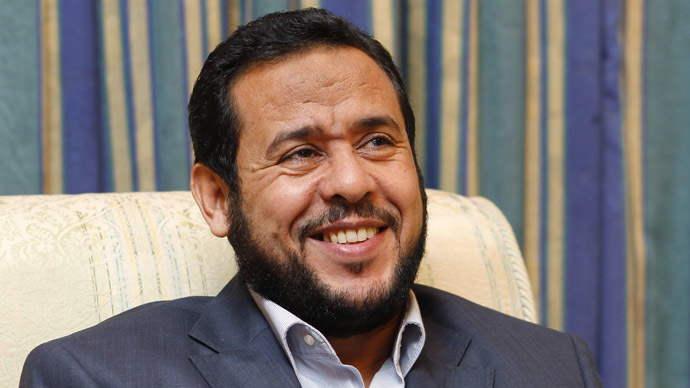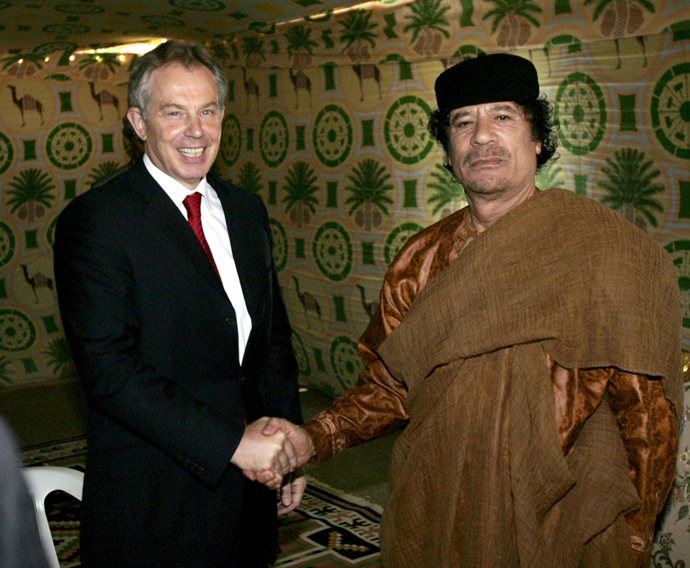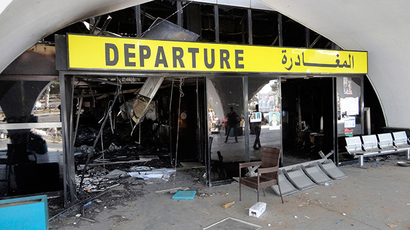Tortured Libyans allege UK spied on legal talks

Lawyers for two Libyan men, rendered and tortured with alleged British complicity, have demanded the government publish secret policies detailing when the communications of lawyers and journalists may have been intercepted.
The issue emerged during a legal claim against the government by Abdel Hakim Belhaj and Sami Al-Saadi. Both men and their families were kidnapped and returned to Libya to face punishment in 2004, following years of anti-regime activity.
According to anti-torture charity Reprieve, assisting Belhaj and his wife Fatima Boudchar in their legal challenge, Belhaj was tortured both in Libya and a CIA ‘blacksite’ in Bangkok. Al-Saadi was forced to board a plane in Hong Kong with his wife and four children before facing torture in Libya.
The allegations came to light during the 2011 uprising, in which both men fought with the Libyan Islamic Fighting Group, when documents relating to their transfer were uncovered.
Both men claimed at an Investigatory Powers Tribunal (IPT) that the British government and intelligence services had spied on their communications with lawyers, damaging their right to a fair trial and their compensation claims for kidnap and torture.
Under UK law, communication between individuals and their lawyers, or with journalists, is deemed to be ‘privileged’ and protected.
The government, however, has declined to disclose any secret policies regarding surveillance of communications.

“We don’t understand why it’s being said that disclosure of policy will cause harm to national security. None of this information ought to be secret. Procedures for ensuring that privileged material is properly protected ought to be open to public scrutiny,” said Dinah Rose QC, one of the men’s advocates.
Eight Libyan nations have come forward claiming they were victims of extraordinary rendition, a program coordinated between the British intelligence service MI6 and US intelligence agencies.
They also claim they were tortured upon their return to Libya in 2004, with the full cooperation of former Labour Prime Minister Tony Blair and former Foreign Secretary Jack Straw.
While the claim against the government will be heard in court in November, civil rights groups including Reprieve say the case will be undermined unless ministers disclose details of their surveillance agenda.
“MI6 helped kidnap my clients and 'rendered' them to Gaddafi's dungeons – but the security services’ misdeeds didn’t stop there. We now know that each security service has at least a policy on their interception of privileged lawyer-client conversations – policies they claim are ‘too secret’ to disclose,” said Reprieve strategic director Cori Crider.
“The reason for these hardline tactics is clear: there is a real risk that privileged information has been improperly used in our clients’ torture claims. If it’s true that information from their spying has tainted government officials or lawyers involved in the Libyan torture cases, then the government has a massive problem on its hands.”
The government paid out £2.2m to Al-Saadi and his family in 2012 after MI6 confessed to their involvement in prisoner torture, although the UK Foreign Office did not admit liability.
Ministers have been under significant pressure to unveil the true extent of government involvement in extraordinary rendition. It was revealed earlier this year that ‘crucial logs’ had been handed to police offering details about Diego Garcia, a ‘black site’ prison the UK used to transfer suspects for torture.
However, the Foreign Office has repeatedly denied that Diego Garcia was used in the CIA rendition program – except for two occasions in 2002, when two planes, carrying a detainee each, stopped on the atoll to refuel.














